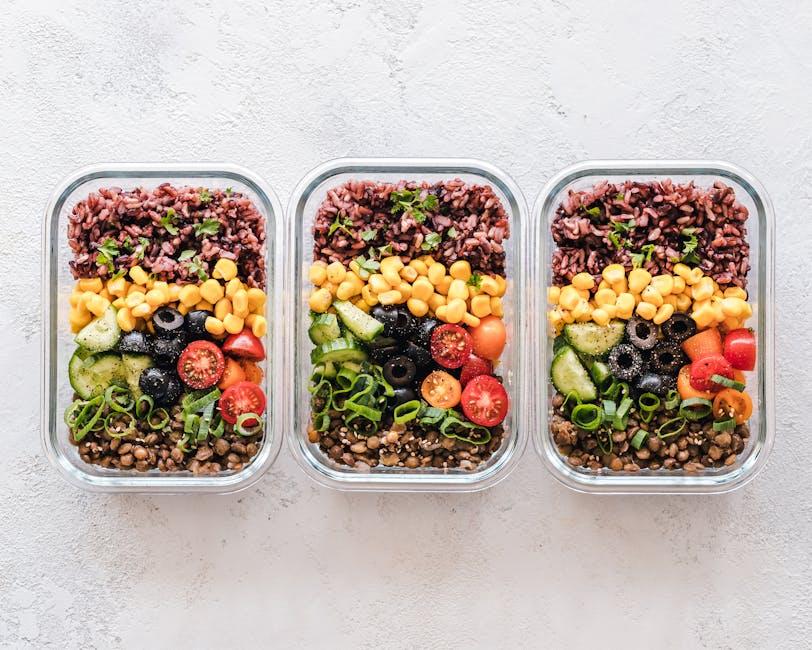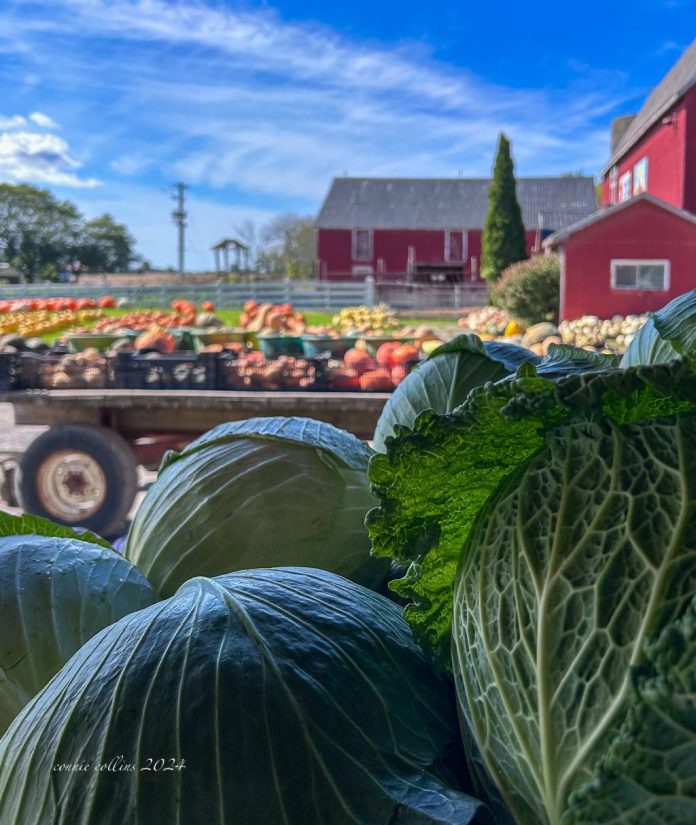In the vibrant tapestry of life, where every choice we make is a brushstroke on the canvas of our well-being, meal planning emerges as an art form in its own right—one that can sculpt our health and vitality with intention and creativity. Imagine a journey where each meal becomes a stepping stone toward sustainable fat loss, not through deprivation, but through mindful abundance. In this exploration, we invite you to reimagine your relationship with food, transforming it from a fleeting necessity into a symphony of flavors and nourishment that aligns with your health goals. With optimism as our guide, we’ll delve into innovative strategies that make meal planning not only a tool for achieving your ideal weight but also a celebration of the vibrant, energetic life you aspire to lead. Embrace this culinary adventure, and discover how the art of thoughtful eating can unlock a world of sustainable transformation and joyful living.
Crafting a Sustainable Plate for Lasting Change
In the journey towards sustainable fat loss, the art of meal planning can be your greatest ally. Imagine a plate that not only delights your taste buds but also nurtures your body and the planet. Building a sustainable plate involves a mindful selection of ingredients that are as kind to the environment as they are to your waistline. By focusing on whole, plant-based foods, you can create meals that are rich in nutrients yet low in environmental impact.
- Prioritize Plants: Fill half your plate with vibrant vegetables and fruits, which are low in calories but high in fiber and essential vitamins.
- Lean Proteins: Choose sustainably sourced lean proteins like legumes, tofu, or sustainably caught fish to keep you satiated without unnecessary fats.
- Whole Grains: Opt for whole grains such as quinoa, brown rice, or oats that provide sustained energy and aid in digestion.
- Healthy Fats: Incorporate small amounts of healthy fats from sources like avocados, nuts, and olive oil to support brain and heart health.
By integrating these elements into your meal planning, you not only support your fat loss goals but also contribute to a more sustainable future. Every choice you make at the grocery store or farmers market is a step towards lasting change, where your health and the health of the planet go hand in hand.

Nourish Your Body with Balanced Choices
When embarking on a journey towards sustainable fat loss, it’s crucial to focus on making balanced food choices that fuel your body and satisfy your taste buds. A well-rounded meal plan doesn’t mean deprivation; rather, it involves selecting a variety of foods that contribute to overall well-being. Incorporate lean proteins like chicken, tofu, and fish to support muscle maintenance and repair. Add a colorful array of vegetables to your plate, as they are packed with essential vitamins and minerals. Don’t forget about healthy fats such as avocados, nuts, and olive oil, which are vital for maintaining energy levels and promoting heart health.
- Plan Ahead: Dedicate time each week to outline your meals, ensuring you have a mix of protein, carbs, and fats.
- Portion Control: Use measuring cups or a food scale to keep portions in check, preventing overeating.
- Stay Hydrated: Water is your best friend; aim for at least eight glasses a day to keep your metabolism active.
- Embrace Variety: Rotate your menu to include different fruits, vegetables, and grains, keeping meals exciting and nutritionally diverse.
Mindful Meal Prep for a Greener Waistline
Embracing a mindful approach to meal prep not only aids in shedding unwanted pounds but also supports sustainable living. By making conscious choices about what we eat and how we prepare our meals, we can create a positive impact on our bodies and the planet. Here are some strategies to guide you:
- Seasonal Produce: Opt for fruits and vegetables that are in season. They are often more nutrient-dense, flavorful, and require less energy to produce and transport.
- Batch Cooking: Cook in bulk to reduce energy usage and minimize food waste. Store leftovers in reusable containers for convenient meals throughout the week.
- Plant-Based Proteins: Incorporate more beans, lentils, and tofu into your meals. These options have a lower carbon footprint compared to animal-based proteins.
- Mindful Portions: Serve smaller portions to reduce overeating and waste. Listen to your body’s hunger cues to avoid unnecessary calorie intake.
By integrating these practices, you can achieve a healthier lifestyle while contributing to a more sustainable world. Remember, every small step counts in making a big difference.
Harnessing the Power of Whole Foods
When aiming for sustainable fat loss, integrating whole foods into your meal planning can transform your journey. These nutrient-dense powerhouses not only support your weight loss goals but also enhance your overall well-being. Think vibrant vegetables, juicy fruits, hearty grains, and lean proteins that delight your taste buds and nourish your body. Embrace the magic of whole foods with these strategies:
- Focus on Variety: Incorporate a rainbow of fruits and vegetables into your meals. The more colors, the better, as each hue brings unique nutrients and benefits.
- Prioritize Protein: Choose lean sources like beans, lentils, tofu, and fish to keep you full longer, reducing the urge to snack between meals.
- Whole Grains Over Refined: Opt for quinoa, brown rice, and whole-grain pasta to provide sustained energy and keep your metabolism humming.
- Mindful Portion Control: Whole foods are nutrient-rich but still require moderation. Use smaller plates to help control portions without feeling deprived.
By crafting meals around these principles, you create a sustainable and enjoyable path to fat loss, one delicious bite at a time.



